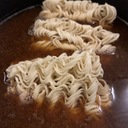Version 1.7
Lecture: I could not resist
Resists for Electron Beam Lithography (EBL)

Photoresists are one of the essential ingredients for chip manufacturing and micro/nano engineering.
We will show how we’re using them in a DIY Electron Beam Lithography set-up and how you’re able to cook your own cheap resists and mix your own developers.
Resists? What's that?
- What are their applications
- How does it work (types (positive/negative), chemistry, proximity effect, dosage etc)
EBL? What's that?
- How does it work
- Pros & cons: comparison between EBL (slow) photolithography (fast)
- Which resist can I use for EBL
DIY cooking of PMMA based resists
- Comparison of different solvents
Composition of different developers
- Comparison of different developers
Applications
- Usage as a mask
- Usage as a structural dielectric material
- ...(?)
The EBL exposure process
- simple SEM retrofitted with an EBL controller
- The common file formats (GDSII & OASIS)
- Scan-Gen: how to generate the proper curves for the exposure
- Hardware: off-the-shelf embedded modules like the RedPitaya
- Generation of different filling curve styles, calibration, compensation of the proximity effect, correction of the SEMs intrinsic parameters, dosage!
- Fiducial detection and alignment for multi-pass/multi-layer processes
Stuff comes together
- walk through the complete process along a simple example
More Examples
Thanks & Credits
Q & A
Info
Day:
2020-12-30
Start time:
14:00
Duration:
00:40
Room:
rC2
Track:
Hardware & Making
Language:
en
Links:
Feedback
Click here to let us know how you liked this event.
Concurrent Events
Speakers
| N00DL3 |